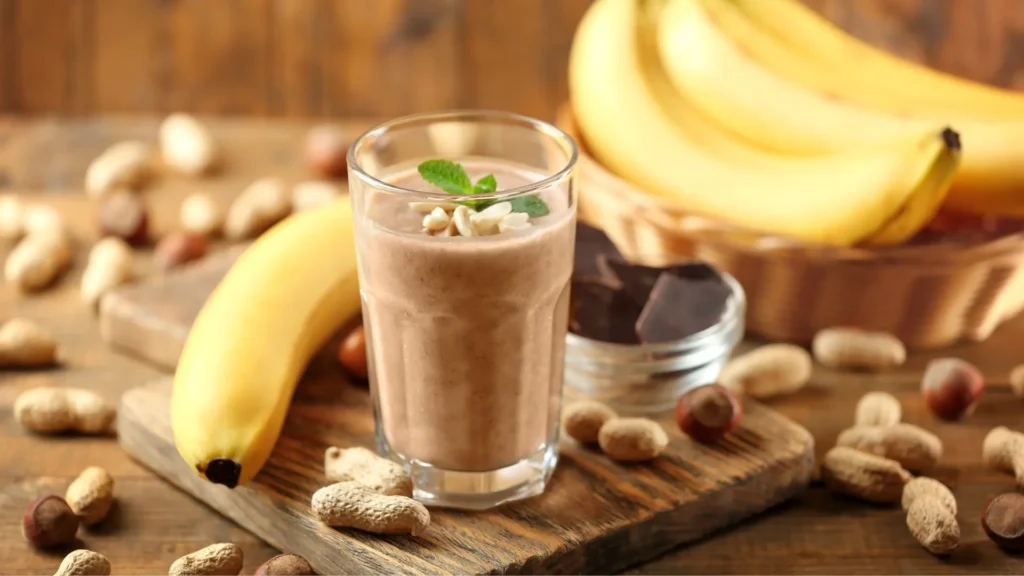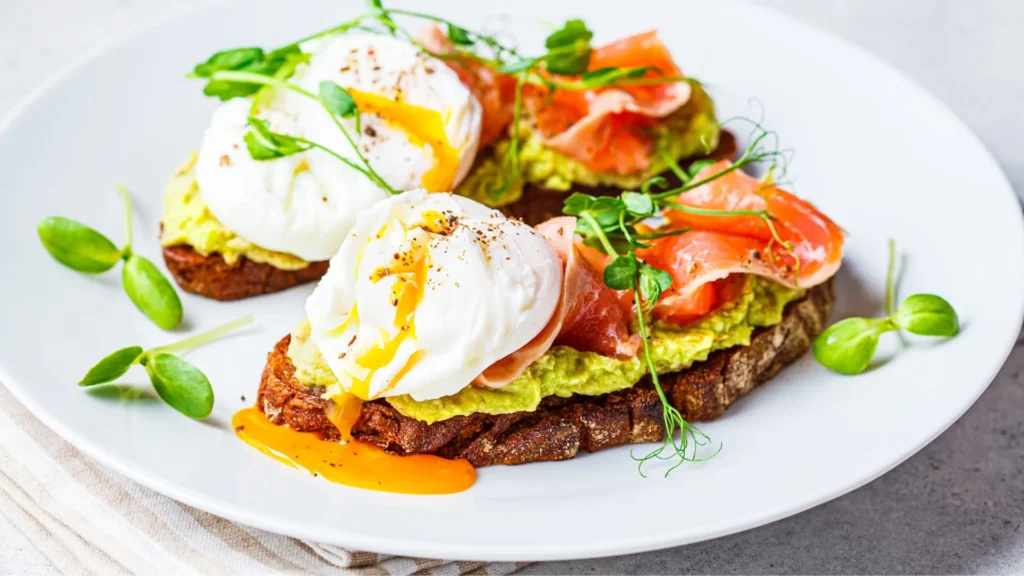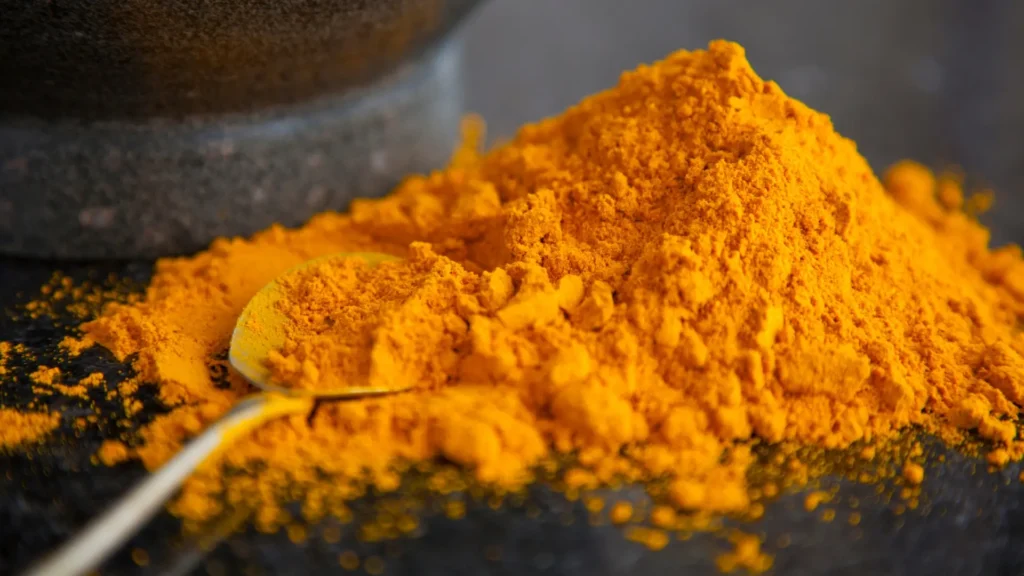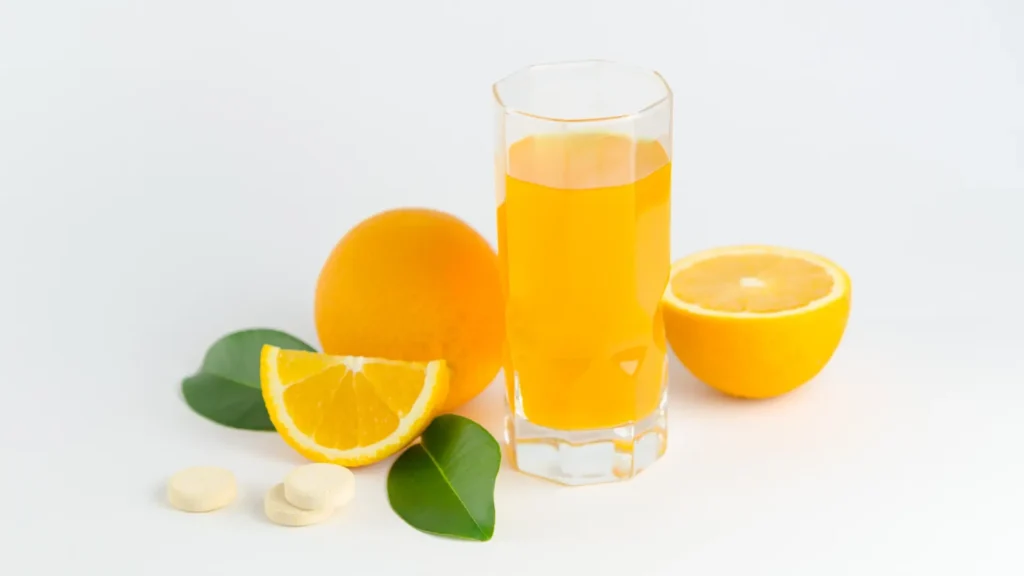During their menstrual cycle, many women experience specific food cravings and a mix of physical and emotional symptoms known as premenstrual syndrome (PMS). These symptoms can include mood swings, cramping, and discomfort. This article explores how nutrition can help alleviate these symptoms by highlighting the best period comfort food for you. By understanding period cravings and PMS symptoms, you can select foods that not only fulfill cravings but also provide nourishment for your body during this time.
The Connection Between Period Cravings, PMS, and Food

Hormonal changes play a significant role in the menstrual cycle. Fluctuations in estrogen and progesterone levels affect neurotransmitters in the brain, leading to specific food cravings. These hormonal shifts can also trigger symptoms like mood swings and pain associated with premenstrual syndrome (PMS). Common discomforts during this time include cramping, headaches, and fatigue.
Why Do We Crave Certain Foods During Our Period?
During our period, our body’s serotonin levels may be lower due to PMS. As a result, we may crave foods that temporarily boost serotonin levels, giving us a feel-good sensation. This is why many women find themselves reaching for carbohydrates and sugars during this time.
How Can Food Help with PMS Symptoms?
Choosing the best period comfort food during your period can make a difference in how you feel. Opting for nutrient-rich options not only satisfies your cravings but also supports your overall well-being and helps manage PMS symptoms. Here’s how different nutrients can benefit you:
- Vitamins: Foods high in vitamins such as B6, D, and E can help regulate mood swings and reduce fatigue.
- Minerals: Magnesium-rich foods like leafy greens, nuts, and whole grains can ease cramps and promote relaxation.
- Good Fats: Omega-3 fatty acids found in fatty fish (salmon, mackerel) and chia seeds have anti-inflammatory properties that may alleviate period pain.
Making Informed Choices for a Better Period
By understanding the relationship between hormones, cravings, and the menstrual cycle, you can make informed choices about your diet to ease your period-related experiences. Remember to listen to your body’s cues and nourish it with wholesome foods that provide both satisfaction and support!
1. Best Period Comfort Food: Nutritious Snacks

Choosing the right snacks during your menstrual cycle can help alleviate cravings and improve mood. Try these options:
- Dark Chocolate: A treat that is not only delicious, but also beneficial for periods. Dark chocolate is rich in magnesium, a mineral that can enhance mood and soothe cramps.
- Peanut Butter: A great option that satisfies cravings, especially if you prefer something savory. The protein and healthy fats found in peanut butter are key ingredients for maintaining energy levels during menstruation.
- Nuts and Seeds: These tiny powerhouses of nutrition are perfect for snacking. Nuts like almonds provide magnesium and vitamin E, while seeds such as flaxseeds offer omega-3 fatty acids. Both contribute to hormone balance, making them an excellent choice during this time.
Remember that a balanced diet plays a crucial role in managing period discomfort.
2. Best Period Comfort Food for Menstrual Pain

When it comes to easing period pain, certain foods stand out for their beneficial properties:
- Salmon: Known for its abundant omega-3 fatty acids content, salmon is recognized for its anti-inflammatory properties, making it a great choice during your menstrual cycle.
- Eggs: They contain a variety of nutrients that support hormone regulation. Eating eggs during your period could potentially ease some PMS symptoms and provide an overall sense of well-being.
- Pineapple: This fruit also makes the list with its natural enzyme, bromelain. It is thought to have anti-inflammatory effects which may contribute to reducing menstrual cramps.
- Avocados: These fruits are rich in potassium and healthy fats, contributing significantly to overall menstrual health by helping to regulate fluid balance and combat bloating.
Keeping these foods in mind and incorporating them into your diet during menstruation can make a noticeable difference in managing period pain.
3. Best Period Comfort Food: Anti-Inflammatory Diet

Experiencing discomfort during your period can often be eased with an anti-inflammatory diet. One particular ingredient that stands out is turmeric. It contains curcumin, an active compound known for its ability to reduce inflammation. Turmeric has been linked to reducing PMS symptoms, making it a great choice to add to your meals when you’re looking for relief.
Why Turmeric?
Turmeric contains an active compound called curcumin, which is known for its anti-inflammatory properties. This spice has been used in traditional medicine for centuries to treat various ailments, including menstrual pain.
How Does Turmeric Help with Period Pain?
Curcumin, the active compound in turmeric, works by inhibiting certain enzymes and molecules in the body that are responsible for triggering inflammation. By reducing inflammation, turmeric can help alleviate the pain and discomfort associated with menstruation.
Other Benefits of Turmeric
In addition to its anti-inflammatory properties, turmeric also offers other health benefits:
- Antioxidant effects: Curcumin is a powerful antioxidant that helps protect the body against damage from harmful free radicals.
- Improved digestion: Turmeric stimulates the production of bile in the liver, which aids in digestion.
- Boosted immune system: The antioxidants in turmeric can help strengthen the immune system and protect against infections.
How to Incorporate Turmeric into Your Diet
There are several ways you can add turmeric to your meals:
- Golden milk: This traditional Indian beverage combines turmeric with milk (or a dairy-free alternative), honey, and spices like cinnamon and ginger.
- Curry dishes: Turmeric is a key ingredient in many curry recipes, giving them their vibrant yellow color.
- Smoothies: Add a teaspoon of turmeric powder or a small piece of fresh turmeric root to your favorite smoothie recipe for an extra health boost.
- Roasted vegetables: Sprinkle turmeric powder over roasted vegetables like cauliflower, sweet potatoes, or Brussels sprouts before baking them in the oven.
Remember to consume turmeric with black pepper or a source of fat (such as coconut oil) to enhance its absorption in the body.
In addition to turmeric, incorporating a variety of leafy greens into your diet is beneficial. Options like collard greens, spinach, and kale are not just abundant sources of calcium but also provide a spectrum of nutrients crucial for managing cramps effectively. These vegetables support the body’s natural processes in mitigating discomfort and maintaining overall menstrual health.
4. Best Period Comfort Food Adding Calcium and Vitamin C

When it comes to managing PMS, calcium plays a crucial role. Foods rich in calcium, such as yogurt, can significantly reduce the severity of cramps and bloating during menstruation.
Another ally in your fight against menstrual discomfort is mint tea. Known for its soothing properties, this herbal remedy can help alleviate cramps and other forms of discomfort associated with menstruation.
Not to be overlooked, oranges are high in vitamin C, an essential nutrient that can ease some PMS symptoms. The high vitamin C content found in oranges makes them an excellent choice for combating the physical and emotional symptoms often experienced during this time.
Lastly, broccoli is a powerhouse of nutrients that support overall hormone balance. Its unique nutrient profile can aid in easing the symptoms often associated with menstruation.
Best Period Comfort Food… to Avoid

When managing menstrual discomfort, it’s as much about the foods to avoid as it is about the foods to consume. Unhealthy foods for period times can be detrimental, potentially heightening PMS symptoms and increasing inflammation. During this sensitive phase, it’s beneficial to steer clear of certain items:
- Fried Foods: Rich in unhealthy fats, these can disrupt hormonal balance. Opt for grilled or baked alternatives that satisfy without the adverse effects.
- Carbonated Drinks: These beverages may lead to increased bloating and discomfort. Instead, try still water or hydrating cucumber slices in water for a refreshing alternative.
- Alcohol: It’s known to dehydrate and can amplify menstrual woes like headaches and bloating. Herbal teas or infused water are excellent substitutes, offering hydration without negative side effects.
By choosing wisely what not to ingest, women can navigate through their menstrual cycle with greater ease and comfort.
Lifestyle Tips for Better Period Management

Managing period discomfort involves more than just maintaining a healthy diet. Here are some other important lifestyle choices to consider:
1. Regular Exercise: Movement can actually be beneficial during menstruation. Engaging in activities like yoga or walking on a regular basis can help reduce cramps and improve your mood by releasing endorphins, which are natural painkillers produced by the body.
Read More: Diet or Exercise: Which is better for losing weight?
2. Stress Management: High levels of stress can make PMS symptoms worse and more difficult to handle. That’s why it’s crucial to find ways to manage stress effectively. Practicing mindfulness or relaxation exercises daily can be helpful in keeping stress levels in check. These techniques promote a sense of well-being and contribute to maintaining hormonal balance, which are essential for better period management.
Read More: 7 Reliable Techniques To Managing Stress?
It’s important to remember that every woman’s body is unique, and what works for one person may not work for another. The key is to experiment with different strategies and develop a personalized plan that caters to your specific needs during this time.
Seeking Professional Help: When to Consult a Doctor

Making dietary and lifestyle adjustments can undoubtedly aid in managing period discomfort. Yet, there could be instances when the severity or persistence of menstrual symptoms may necessitate medical intervention. This is particularly true when intense pain becomes a regular feature of your menstrual cycle, not just an occasional nuisance.
Prolonged mood disturbances, another symptom not to be ignored, might indicate an underlying issue that requires a healthcare provider’s insight. It is crucial to remember that while experiencing some level of discomfort during periods is common, extreme suffering isn’t.
When such severe period symptoms start affecting your daily life, it’s time to consult your doctor. They can provide guidance tailored to your specific needs and circumstances, ensuring that your menstrual health is well taken care of.
Conclusion
So what’s the best period comfort food? Like we discussed, there are different foods that help alleviate different pains. There isn’t a one size fit all solution. It’s all about finding what works for you and your body. So, don’t be afraid to experiment and listen to your body’s needs during this time.
Whether it’s indulging in some dark chocolate for mood swings or sipping on a hot cup of herbal tea for cramps, finding the best period comfort food can be a small yet significant step towards managing period discomfort. You’re not alone in this journey – there are numerous resources and professionals available to support you along the way.
Read More: How to Establish a Bedtime Routine for Your Baby in 3 Easy Steps


